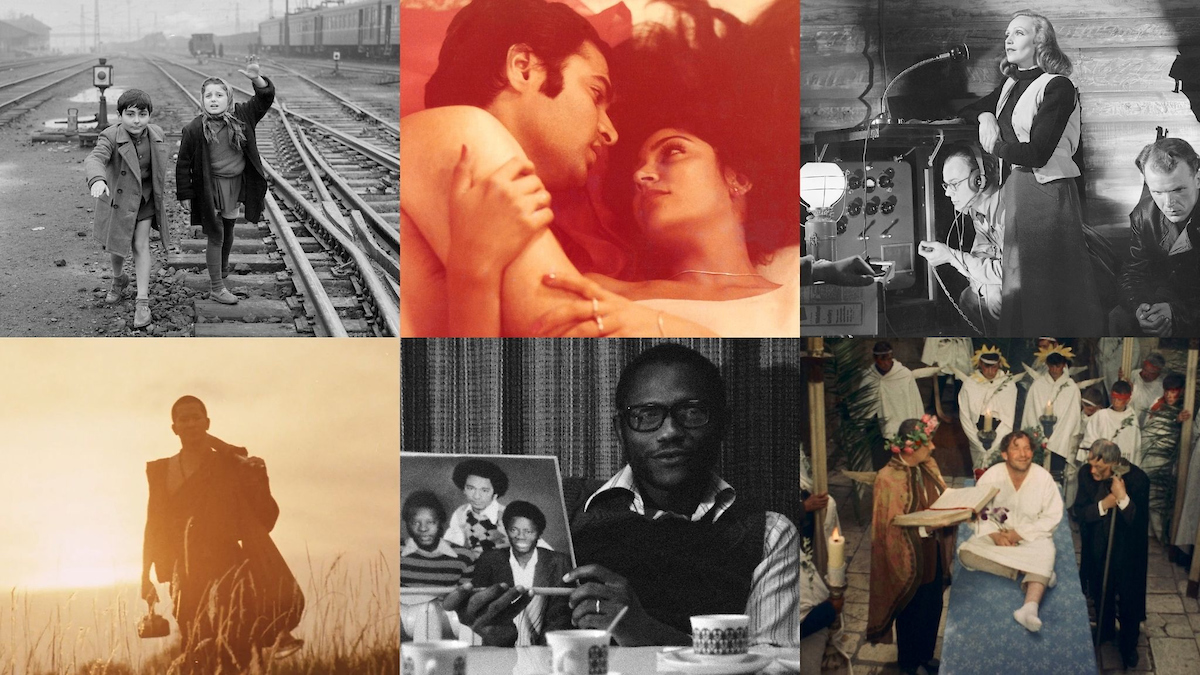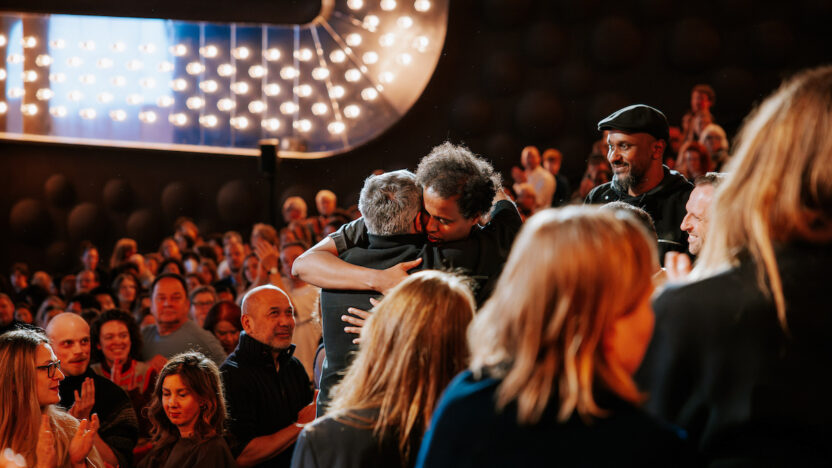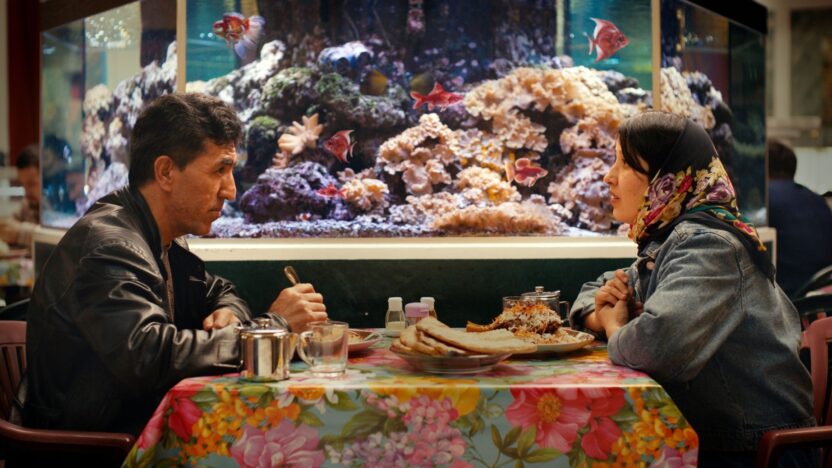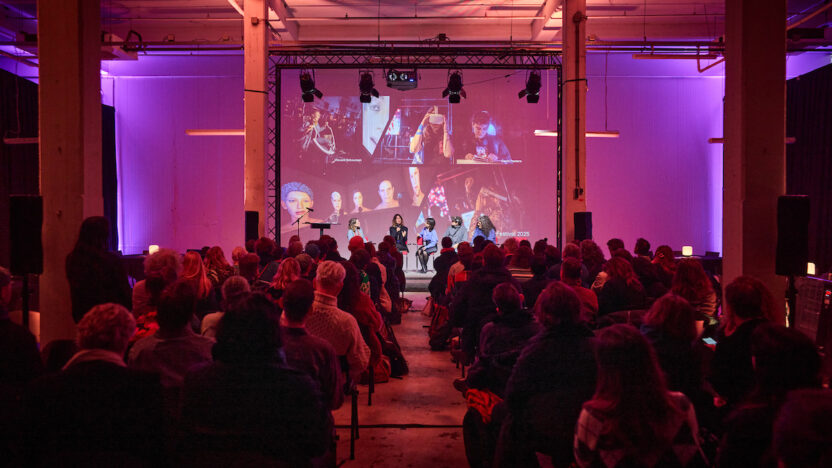Cinema Regained programme IFFR 2025
IFFR has revealed its Cinema Regained programme for the 2025 edition — a sphere of collective cinematic memory and imagination. This strand of 43 works will showcase restored classics, thought-provoking documentaries on film culture, and insightful explorations of cinema’s heritage. The programme focuses on both recent cinematic work, as well as stretching back into film’s history with a selection of pre-1970 restorations.

Olaf Möller, Cinema Regained programmer, said: “Whilst IFFR celebrates reinvention, it never forgets to look back. Cinema Regained this year serves as a vital bridge between past and present, reconnecting audiences with forgotten cinematic histories while continuing a story that has long been told in Rotterdam. It’s a space to deepen curiosities and acts as connective tissue for the wider festival, weaving together diverse narratives and expanding on our Focus programmes. It’s an opportunity to reflect on cinema’s cultural and political legacies across time and marvel at some of the greatest filmmakers that history has produced, those celebrated and those forgotten – a treasure to behold!”
Cinema Regained programme highlights
This year’s Cinema Regained selection shines a spotlight on filmmakers whose contributions have shaped cinema history, both celebrated and overlooked. After a 30-year hiatus, Burkinabé director Drissa Touré makes his return with the world premiere of Mousso Fariman, co-directed with Stéphane Mbanga, which explores the contradictions in Burkina Faso’s society, focusing on the resilience of women in daily life.
The legacy of Sergei Parajanov is honored with the world premiere of The Lilac Wind of Paradjanov at IFFR 2025, thirty seven years following his first international visit to the festival, which is featured prominently in the film. Filmmaker Ali Khamraev, accompanied by cinematographer Yuri Klimenko, delved into the archives and travelled to Armenia and Georgia to honour one of cinema’s greats, whose vision and defiance of convention transcended borders.
The Jester by José Álvaro Morais screened at IFFR in 1988, returns in a restored version, blending theatre and cinema in a poetic adaptation of Alexandre Herculano’s 1842 novel on Portuguese independence. Thai cinema takes centre stage with Khom Akadet’s I Am with a Monk, a gripping tale of survival and redemption starring Thai screen icons Sombat Methanee and Sorapong Chatree.
Cinema Regained has twice presented Korean public broadcaster KBS’s documentary television series Modern Korea, which critically examines the nation’s history through the prism of KBS’s own production. The latest instalment, which has its international premiere at IFFR, from filmmaker Lee Taewoong is Korean Dream: The Nama-jinheung Mixtape, a reflective documentary built from fragments of films by the now-defunct Nama-jinheung studio to capture the inner landscape of Koreans during the Cold War.
Bomba Bernal is IFFR-regular Khavn’s AI-driven homage to the Filipino bomba genre and also has its world premiere at IFFR 2025. Another IFFR-favourite, Saeed Nouri, presents Tehran, An Unfinished History exploring pre-1979 Iranian cinema’s unexplored history. Meanwhile, Sami van Ingen returns with Cast of Shadows, an intimate archival essay unravelling the stories of women behind Robert Flaherty’s legacy – one of the many titles in this year’s programme that places women at the centre of film history.
As in previous editions, women remain central to the Cinema Regained programme. Indian filmmaker Sai Paranjpye’s Katha brings wit and charm to the classic hare-and-tortoise fable, while the world premiere of Vani Subramanian’s Cinema Pe Cinema: The Theatres. The Movies. And Us explores the legacy of India’s single-screen cinemas, weaving the memories of these theatres with the social and political shifts of the nation over the past century.
Gujarati filmmaker Chetna Vora is honoured with screening her first film Oyoyo, an investigation into the life of foreign students in the German Democratic Republic, where Vora studied film, exploring themes of cultural identity, music, and community. Her second film, Frauen in Berlin, screens in the programme Focus: Hold Video in Your Hands: a collection of stories and impressions from the perspective of women, a work made more interesting by its survival through the medium of VHS. Additionally, Christiane Büchner’s Erzählungen eines Kinogehers paints a portrait of cinephilia through conversations with Werner Dütsch, a pioneer of German television’s engagement with film culture.
The programme also dives deep into historical narratives often left untold. The world premiere of Hafiz Rancajale’s Bachtiar revisits the silenced legacy of Indonesian filmmaker Bachtiar Siagian, whose career was cut short during the 1965 anti-Communist purge. Most of his work was either neglected or destroyed under Suharto’s regime. This film serves as a powerful counter-narrative, challenging the distorted portrayal of his legacy in official historiography. Bachtiar’s recently rediscovered masterpiece Turang (1957) screens in Focus: Through Cinema We Shall Rise!
The Cinema Regained programme also highlights several pre-1970s works, each offering unique storytelling perspectives. Whilst presenting the retrospective of the Ukrainian filmmaker in Focus: Sergii Masloboishchykov, Cinema Regained deepens the context with an exploration of Ukranian exile cinema in the US in the 1930s Cossacks in Exile (1939), the second and final joint endeavor between filmmaker Edgar Georg Ulmer and dancer-choreographer Vasilʹ Avramenko, telling the story of Ukrainians who refuse to submit to Russian authorities, and are then driven from their country.
Gustaf Molander’s There’s a Fire Burning (1943) explores wartime tensions through an unraveling love story, recently honored with a retrospective at Bologna’s Il Cinema Ritrovato. Tengiz Abuladze’s Someone Else’s Children (1958) presents a tender tale of two siblings seeking a maternal figure, while Vatroslav Mimica’s Kaja, I’ll Kill You! (1967) stands out as a bold, fragmented exploration of oppression, blending poetic narrative with striking experimentation.
The spirit of cinematic community and cultural identity is celebrated in Todo parecía posible by Ramón Rivera Moret. The film revisits Puerto Rico’s utopian moment through the lens of rural filmmaking in the 1950s and 60s. Accompanying the film is the short programme A Better Tomorrow for Puerto Rico, featuring three titles tracing the beginnings of filmmaking in Puerto Rico, including Las manos del hombre (1952), by Jack Delano.
Check out the full festival programme and select the filter ‘Cinema Regained’ via the button below.
A list with articles
-

IFFR closes its 55th edition celebrating an uptick in new, younger audiences and industry attendees
Published on:-
News
-
Press release
-
-

Shahrbanoo Sadat’s No Good Men opens Berlinale 2026 among strong HBF and CineMart lineup
Published on:-
CineMart
-
Hubert Bals Fund
-
IFFR Pro
-
-

